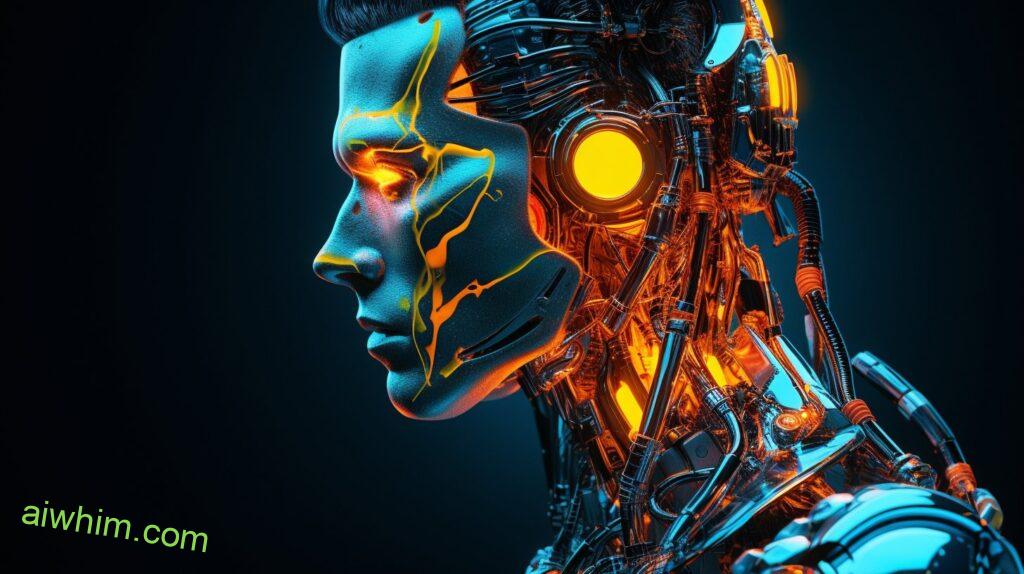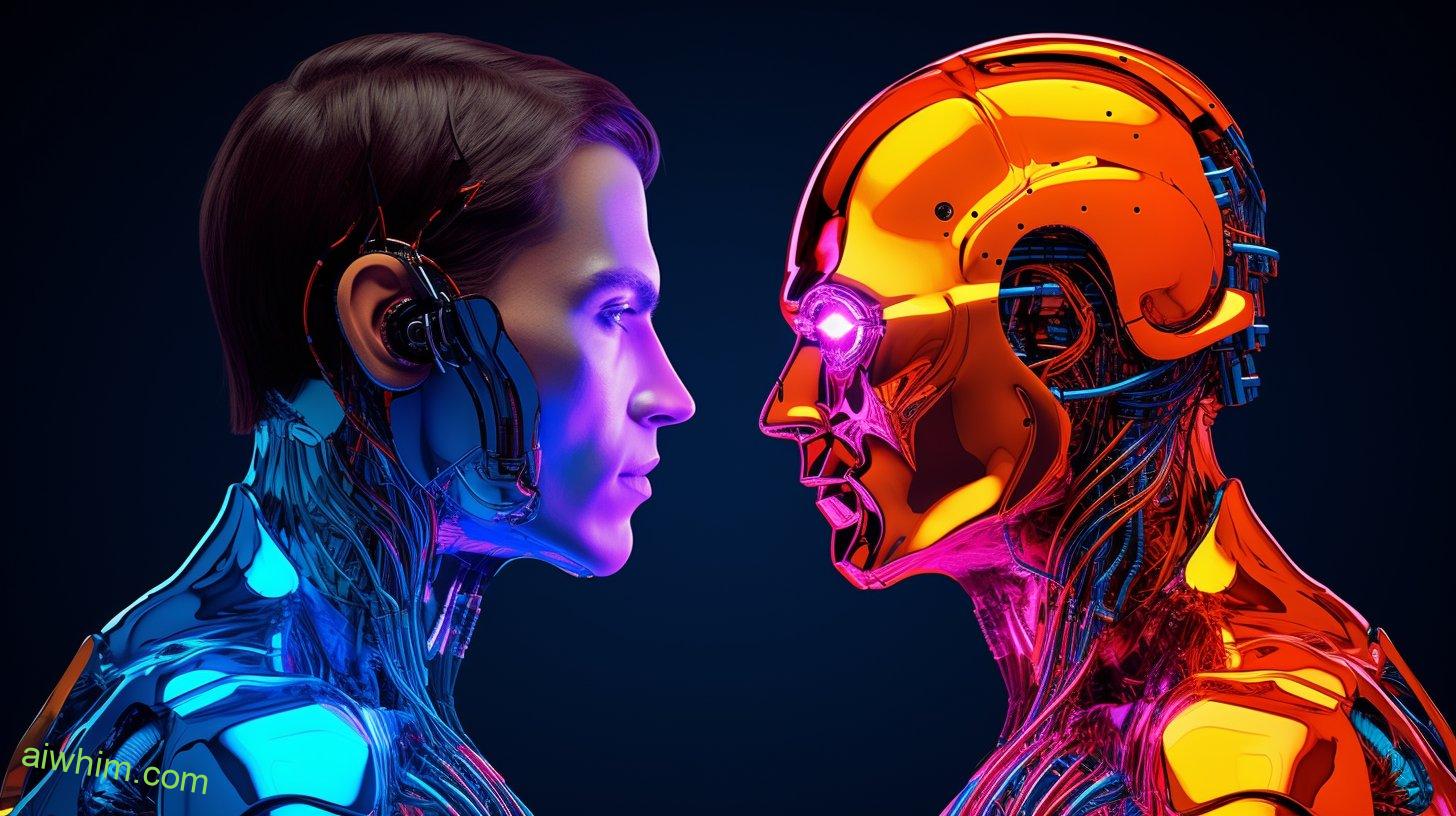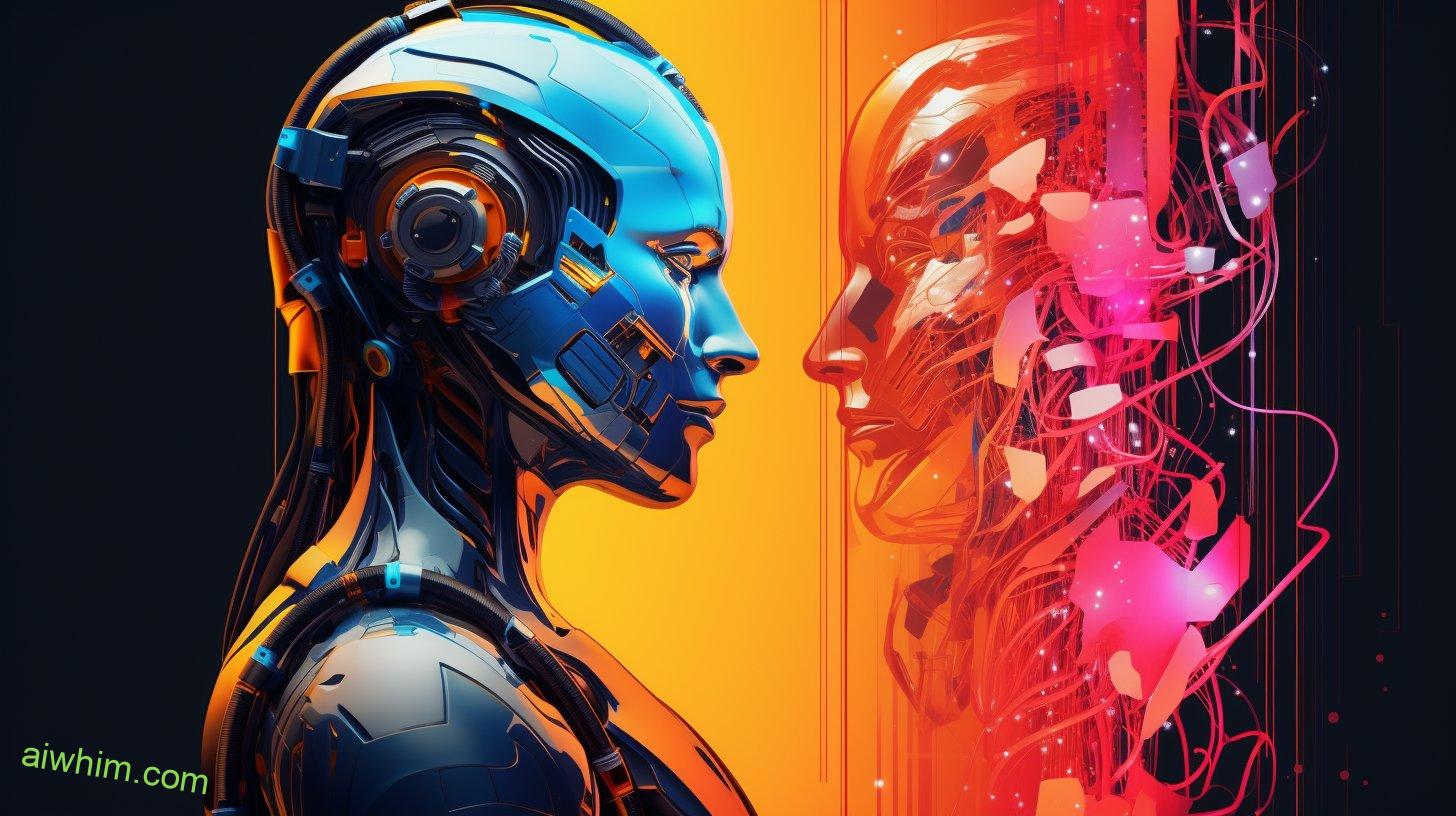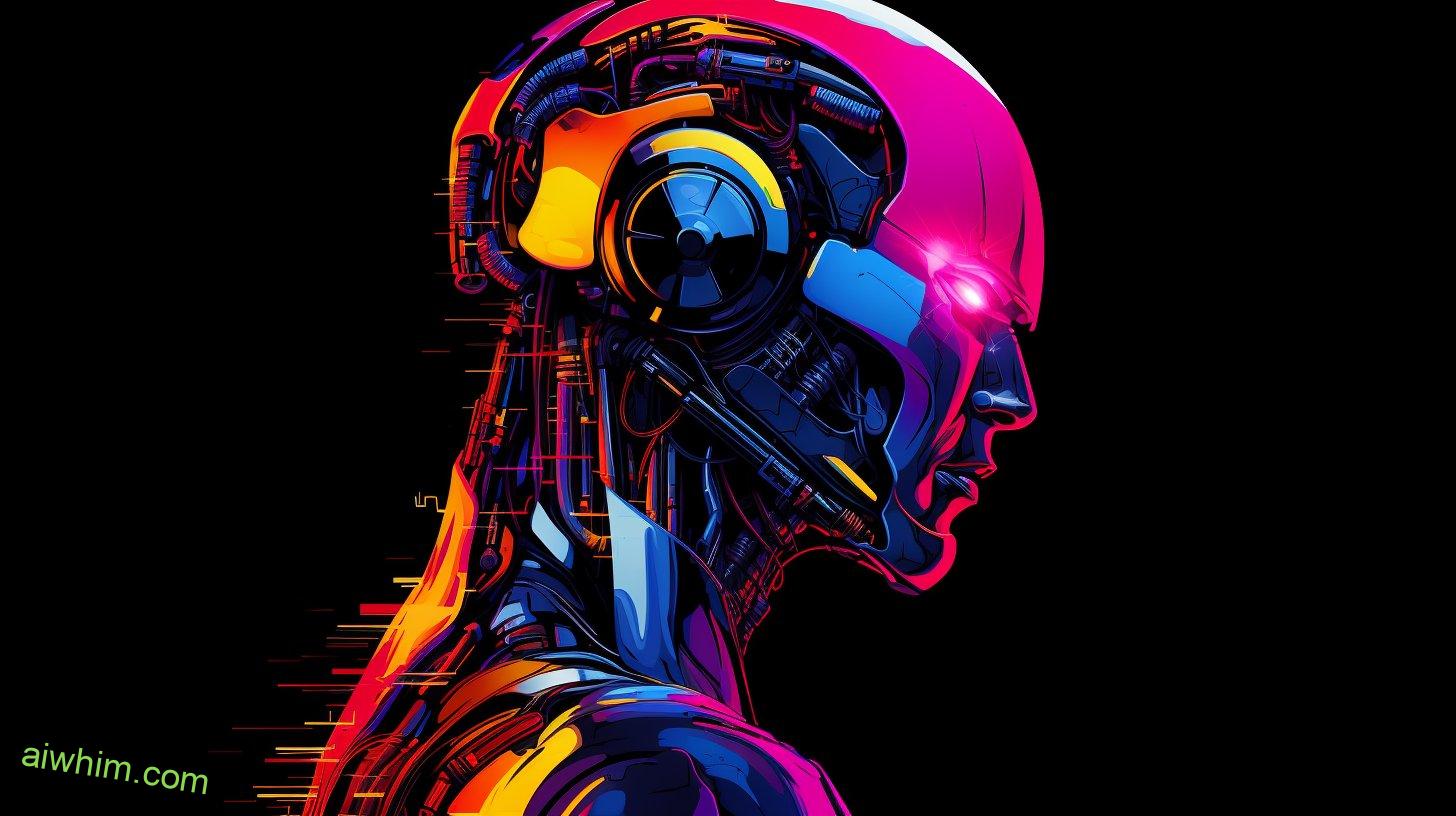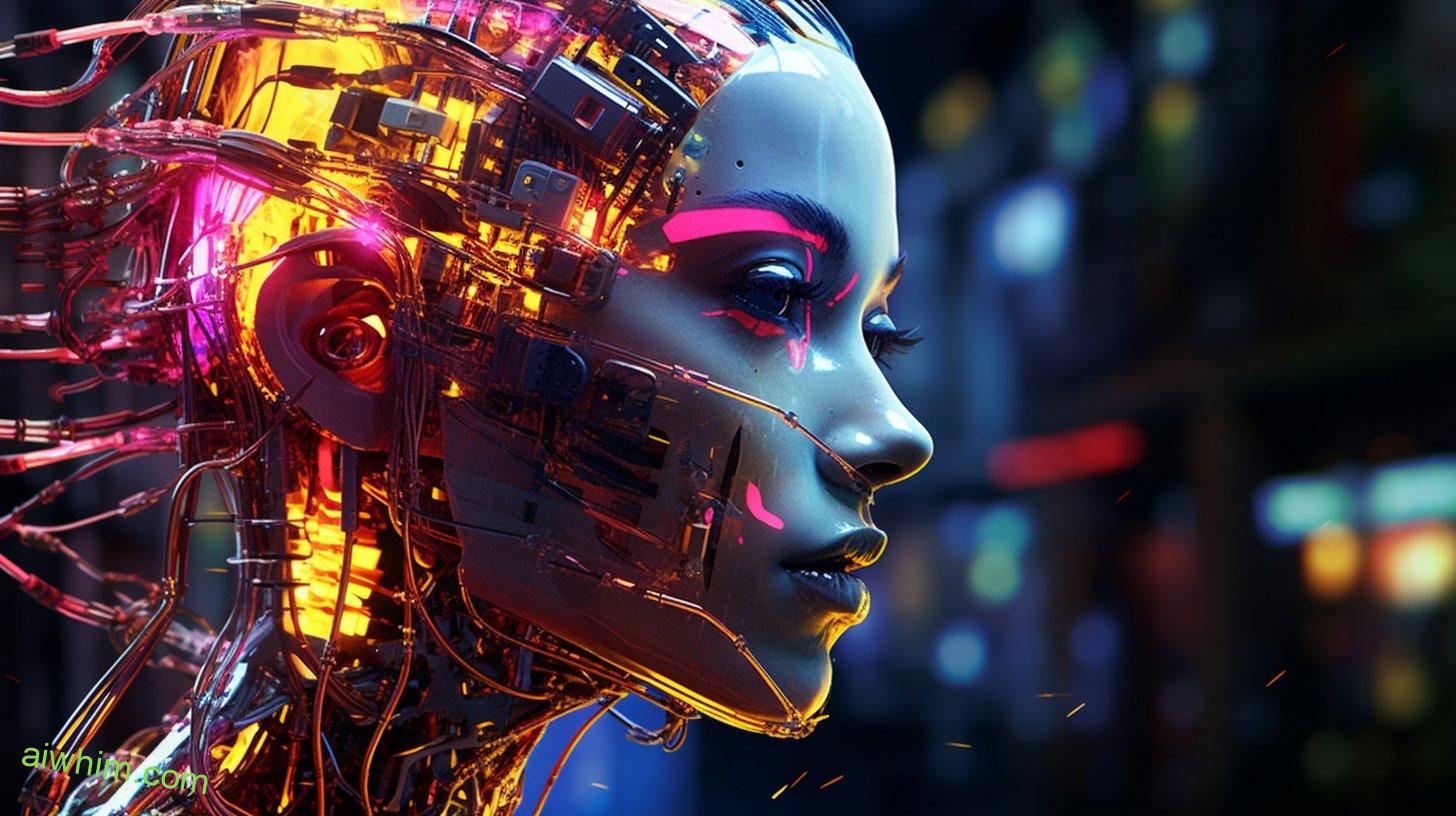Are you ready to explore the future of marriage and family therapy in the ever-evolving realm of artificial intelligence (AI)?
As technology continues to advance at an unprecedented rate, concerns are being raised about the potential impact of AI on the job prospects of therapists.
With AI systems being developed to provide mental health support and guidance, the role of human therapists may face significant changes.
In this discussion, we will delve into the advantages, challenges, and ethical considerations surrounding the integration of AI in therapy, while also exploring strategies for therapists to adapt and thrive in the AI era.
Key Takeaways
- Decreased demand for human therapists due to the availability and accessibility of AI-assisted therapy
- Potential displacement of therapists by AI systems
- Shift in job roles, with therapists focusing more on overseeing AI systems and providing specialized care
- Need for therapists to adapt and acquire new skills to work alongside AI technology

The Role of AI in Therapy
AI is revolutionizing the field of therapy by offering innovative tools and insights to support mental health professionals in their practice. The role of AI in therapy is expanding, and it has the potential to bring numerous benefits to both therapists and their clients.
One of the main benefits of AI-assisted therapy is its ability to provide personalized treatment options. Traditional therapy relies on general approaches that may not always address an individual’s specific needs. However, AI algorithms can analyze vast amounts of data, including patient history, symptoms, and treatment outcomes, to create tailored treatment plans. This means that therapists can offer more effective and efficient treatments that are better suited to each client’s unique circumstances.
Another advantage of AI in therapy is its ability to enhance self-reflection and self-care. AI tools can track and analyze patterns in a person’s behaviors, thoughts, and emotions, helping them gain deeper insights into their own mental health. This self-awareness can empower individuals to take proactive steps towards managing their mental well-being, even outside of therapy sessions. AI can also provide real-time feedback and reminders, ensuring that individuals stay on track with their self-care routines and therapy goals.
Furthermore, AI-assisted therapy can help overcome geographical limitations. With the use of teletherapy platforms and AI chatbots, individuals in remote or underserved areas can access mental health support without the need for in-person sessions. This expands access to therapy and allows more people to receive the help they need, regardless of their location.
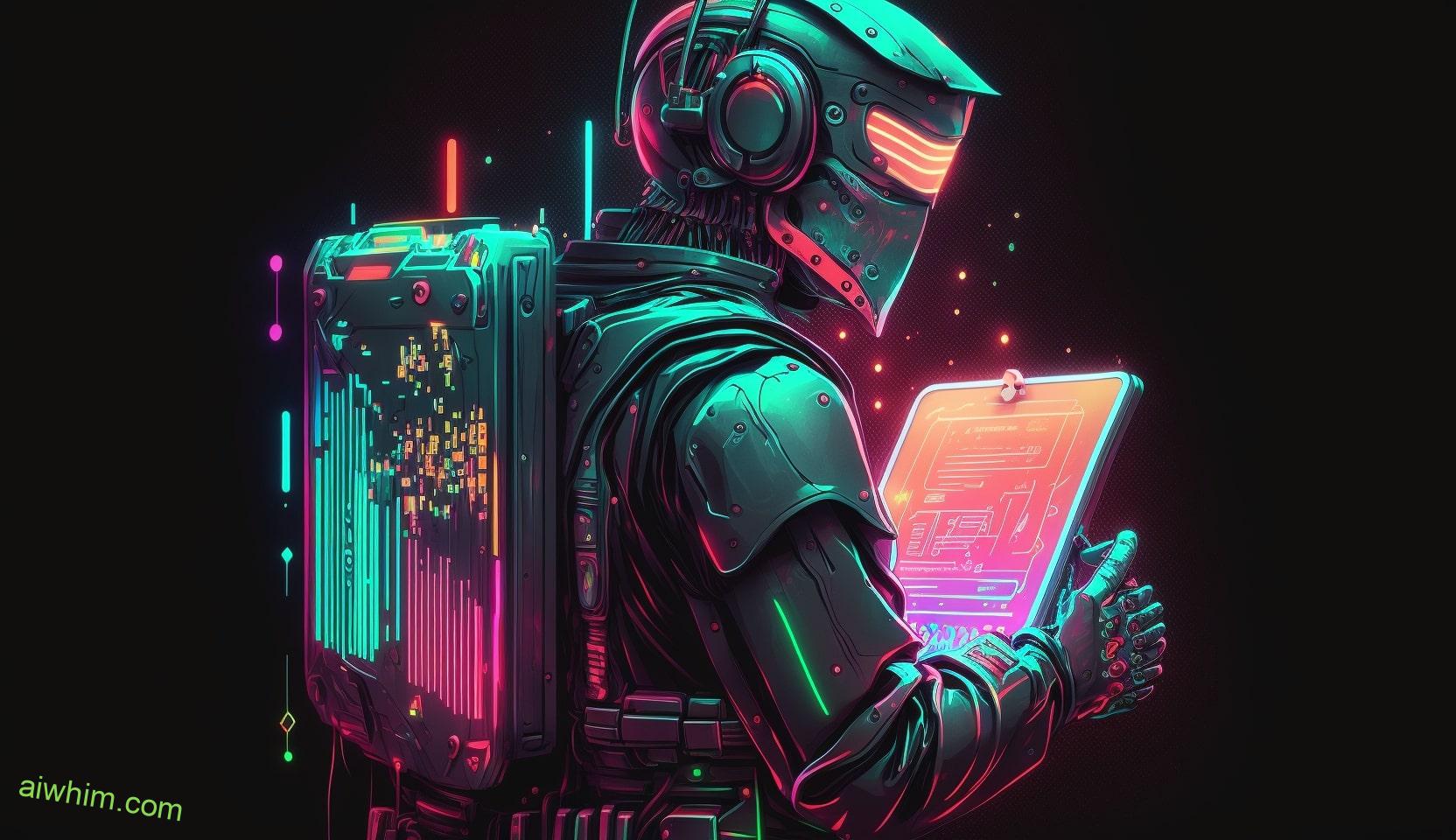
Advantages of AI in Therapy
As therapy continues to evolve, the integration of AI brings numerous advantages that can greatly benefit both therapists and clients. AI applications in therapy have the potential to revolutionize the way mental health is addressed and improve the overall well-being of individuals seeking therapy.
One of the key advantages of AI in therapy is its ability to provide personalized and accessible care. With the help of AI, therapists can develop tailored treatment plans based on the specific needs of each client. AI algorithms can analyze data from various sources, such as self-report questionnaires and wearable devices, to gain insights into a client’s mental health status. This enables therapists to provide targeted interventions that are more effective in addressing their clients’ unique challenges.
Furthermore, AI can enhance the efficiency of therapy by automating certain tasks. For example, AI-powered chatbots can provide immediate support and guidance to clients, reducing the waiting time for appointments and enabling individuals to access help whenever they need it. This can be particularly beneficial for those who may be hesitant to seek therapy or live in remote areas with limited access to mental health services.
AI also has the potential to improve the accuracy and effectiveness of therapy interventions. Machine learning algorithms can analyze large datasets of therapy sessions to identify patterns and trends that may not be easily apparent to human therapists. This can help therapists refine their techniques and interventions, leading to better outcomes for their clients.

Challenges of AI in Therapy
Despite the numerous advantages that AI brings to therapy, there are also several challenges that need to be addressed.
While AI applications and advancements have the potential to revolutionize the field of therapy, they also pose certain risks and limitations.
One of the main challenges is the potential loss of the human connection. Therapy is a deeply personal and emotional process, and many individuals seek therapy because they desire human empathy and understanding. AI, no matter how advanced, may struggle to provide the same level of emotional support and connection that a human therapist can offer.
Another challenge is the potential for bias and discrimination in AI algorithms. AI systems are only as unbiased as the data they’re trained on, and if the data contains biases, the AI may inadvertently perpetuate them. This could lead to unequal access to therapy or biased treatment recommendations based on factors such as race, gender, or socioeconomic status. It’s crucial to ensure that AI algorithms are trained on diverse and representative data to mitigate these risks.
Additionally, there are concerns about the ethical implications of using AI in therapy. Privacy and confidentiality are fundamental principles in therapy, and it’s essential to ensure that AI systems adhere to strict privacy standards. There’s also the question of accountability and responsibility. Who’s responsible if an AI system provides inaccurate or harmful advice? These ethical considerations must be thoroughly addressed to ensure the safety and well-being of therapy clients.

Impact of AI on Therapist-Patient Relationship
The use of AI in therapy can have a significant impact on the relationship between therapists and their patients. As AI technology continues to advance, it’s being integrated into various therapeutic interventions, raising important ethical implications for the therapist-patient relationship.
AI in therapeutic interventions, such as chatbots or virtual therapists, can provide patients with a convenient and accessible means of receiving support. These AI tools are available 24/7, allowing individuals to seek help whenever they need it, without having to wait for an appointment. This can be particularly beneficial for those in remote areas or with limited access to mental health services. However, the reliance on AI raises concerns about the potential loss of the human connection that’s crucial in therapy.
The therapeutic relationship between a therapist and their patient is built on trust, empathy, and understanding. AI, while capable of providing information and resources, lacks the emotional intelligence and human intuition that therapists possess. Patients may feel more comfortable opening up to a human therapist who can empathize and provide personalized support. The use of AI in therapy may inadvertently devalue the importance of the human element in the therapeutic process.
Moreover, the ethical implications of AI in the therapist-patient relationship can’t be overlooked. Privacy and confidentiality are fundamental aspects of therapy, and the use of AI raises concerns about data security and breaches of confidentiality. Patients may hesitate to share sensitive information with an AI tool, fearing that their personal data could be compromised.

Ethical Considerations in AI Therapy
AI therapy presents several ethical considerations that must be carefully addressed. As technology continues to advance, it becomes crucial to examine the ethical implications and privacy concerns associated with AI therapy. Here are three key points to consider:
- Confidentiality: One of the primary concerns with AI therapy is the potential breach of patient confidentiality. While AI systems are designed to store and process vast amounts of data, ensuring the privacy and security of this information is paramount. It’s essential to establish strict protocols and safeguards to protect patient data from unauthorized access or disclosure.
- Informed Consent: In the realm of AI therapy, obtaining informed consent from patients becomes a complex issue. It’s crucial to ensure that individuals fully understand the nature of AI therapy, its limitations, and the potential risks involved. Additionally, patients should have the freedom to choose whether they wish to engage in therapy with an AI system or prefer human interaction.
- Accountability and Responsibility: As AI systems become increasingly sophisticated, questions arise about who should be held accountable for their actions. In the context of AI therapy, it’s essential to determine the responsibility of both the developers and the system itself. Ethical guidelines should be established to regulate the behavior and decision-making process of AI systems, ensuring they align with the principles of beneficence and non-maleficence.
Addressing these ethical considerations will be crucial in ensuring the safe and ethical implementation of AI therapy. As technology continues to evolve, it’s essential to strike a balance between the benefits of AI therapy and the protection of patient rights and well-being.

AI Tools for Assessment and Diagnosis
Now let’s explore the use of AI tools for assessment and diagnosis, building upon the ethical considerations surrounding AI therapy. AI technology has made significant advancements in recent years, and its potential in the field of mental health assessment and diagnosis is undeniable. These AI tools for treatment offer a range of benefits, including increased efficiency, accuracy, and accessibility.
One of the key advantages of using AI tools for assessment is the ability to analyze large amounts of data quickly and accurately. Traditional methods of assessment and diagnosis often rely on subjective evaluations, which can be influenced by various biases. AI tools, on the other hand, can process vast amounts of information objectively, leading to more reliable and consistent results. This can help therapists in making more informed decisions about treatment plans and interventions.
However, the use of AI tools in assessment also raises ethical implications that need to be carefully considered. For instance, there are concerns about the privacy and security of patient data. AI systems require access to sensitive information to provide accurate assessments, and there’s a risk of this data being mishandled or misused. Additionally, there’s a concern about the potential for AI tools to replace human therapists entirely, leading to a loss of personal connection and empathy in the therapeutic process.
To address these ethical concerns, it’s crucial to establish clear guidelines and regulations regarding the use of AI tools in assessment and diagnosis. This includes ensuring the protection of patient privacy and data security, as well as implementing safeguards to prevent the misuse of AI technology. It’s also important to recognize that AI tools should complement, rather than replace, human therapists. The human element in therapy, including empathy and understanding, can’t be replicated by AI.

Potential Benefits of AI-Assisted Therapy
AI-assisted therapy offers a range of potential benefits for both therapists and clients. Here are some of the advantages of incorporating AI in counseling and mental health treatment:
- Improved Accessibility: AI-assisted therapy can make mental health services more accessible to those who may face barriers, such as geographic location or limited financial resources. With the help of AI, therapy can be accessed remotely, allowing individuals to receive support from the comfort of their own homes.
- Enhanced Efficiency: AI tools can assist therapists in streamlining their processes, such as automating administrative tasks and managing client records. By reducing the time spent on paperwork, therapists can focus more on providing quality care and attending to their clients’ needs.
- Personalized Treatment: AI can help therapists gather and analyze vast amounts of data to gain insights into each client’s unique needs and preferences. By understanding individual patterns and preferences, therapists can tailor treatment plans that are specifically designed to address their clients’ concerns and promote better outcomes.
- **24/7 *Support***: AI-assisted therapy can provide round-the-clock support to individuals in need. Whether it’s through chatbots or virtual assistants, AI can offer immediate responses and guidance, ensuring that clients have access to support whenever they require it.
- Anonymity and Privacy: For some individuals, the fear of judgment or stigma may prevent them from seeking therapy. AI-assisted therapy can provide a level of anonymity that allows clients to open up more freely and honestly without the fear of being judged.
Incorporating AI in counseling and mental health treatment has the potential to revolutionize the field by improving accessibility, efficiency, personalization, and support. By embracing the benefits of AI, therapists can enhance their practice and provide better care to their clients.

AI’s Potential Limitations in Therapy
With the potential benefits of incorporating AI in therapy, it’s important to also consider the limitations that AI may present in the field of counseling and mental health treatment. While AI has the potential to enhance therapy sessions by providing personalized insights and recommendations, it’s essential to acknowledge its limitations and the potential risks of relying solely on AI in therapy.
One of the main limitations of AI in therapy is the absence of human connection. Therapy is a deeply personal and emotional experience that often relies on the empathetic and compassionate support of a human therapist. AI, no matter how advanced, can’t fully replicate the warmth and understanding that comes from human interaction. The emotional bond between a therapist and a client is crucial in establishing trust, fostering a safe space, and promoting healing.
Additionally, AI may lack the ability to accurately interpret non-verbal cues and emotions. Human therapists are trained to observe body language, facial expressions, and tone of voice, which can provide crucial insights into a client’s emotional state. AI may struggle to accurately interpret these cues, leading to potential misinterpretations or misunderstandings.
Another limitation is the potential for AI to reinforce biases and stereotypes. AI systems are trained using vast amounts of data, which can inadvertently perpetuate societal biases. This can result in biased or discriminatory recommendations, potentially causing harm to clients. It’s essential to carefully monitor and address any biases in AI systems to ensure equitable and inclusive therapy practices.
Furthermore, relying solely on AI in therapy may hinder the development of essential therapeutic skills in human therapists. The human touch, intuition, and ability to navigate complex emotions are all part of what makes therapy effective. By depending too heavily on AI, therapists may miss out on opportunities for personal growth and development in their profession.

The Future of AI in Marriage and Family Therapy
The future of AI in marriage and family therapy holds great potential for enhancing therapeutic outcomes and improving the overall quality of care. As technology continues to advance, the role of robots in mental health is becoming increasingly significant. Here are three key aspects to consider when looking at the future of AI in marriage and family therapy:
- Increased access to care: With the integration of AI, individuals and families in remote areas or underserved communities will have easier access to mental health services. AI-enabled chatbots and virtual therapists can provide support and guidance 24/7, breaking down barriers of time and distance.
- Personalized treatment plans: AI algorithms can analyze vast amounts of data to identify patterns and tailor treatment plans specifically to individuals and families. By taking into account factors such as genetic predispositions, socio-economic backgrounds, and cultural influences, AI can assist therapists in developing more effective and personalized interventions.
- Supplementing human therapists: AI can act as a valuable tool for human therapists, assisting them in gathering and analyzing data, providing real-time feedback, and suggesting evidence-based interventions. This collaboration between human therapists and AI technology can enhance the therapeutic process, leading to better outcomes for clients.
While the future of AI in marriage and family therapy looks promising, it’s crucial to emphasize that technology shouldn’t replace human connection and empathy. The role of robots should be seen as a supplement, not a substitute, for human therapists.
Ultimately, the future of mental health lies in the integration of AI and human expertise, working together to provide the best possible care for individuals and families.

AI as a Complementary Tool in Therapy
As technology continues to advance in the field of marriage and family therapy, the integration of AI as a complementary tool holds great potential for enhancing therapeutic outcomes and improving the overall quality of care.
AI can be utilized in various ways to support individuals in their self-care journey and assist therapists in mental health screening.
One way AI can be beneficial is through its integration in self-care practices. AI-powered applications and virtual assistants can provide personalized recommendations and reminders to help individuals maintain their mental and emotional well-being. These tools can offer guided meditation sessions, breathing exercises, and stress management techniques tailored to individual needs. By leveraging AI in self-care, individuals can have access to resources and support whenever they need it, empowering them to take an active role in their mental health.
Furthermore, AI can play a crucial role in mental health screening. With the help of machine learning algorithms, AI can analyze vast amounts of data to identify patterns and markers indicative of mental health conditions. This can enable therapists to gain insights into their clients’ well-being more efficiently and accurately. By automating the screening process, AI can help therapists prioritize their caseloads and allocate resources effectively, ensuring that individuals receive the necessary care in a timely manner.
While AI holds promise as a complementary tool in therapy, it’s important to note that it shouldn’t replace human interaction and expertise. AI should be viewed as a valuable addition to the therapeutic process, providing support and enhancing the overall quality of care. By embracing AI in self-care practices and mental health screening, therapists can leverage technology to better serve their clients and create a more holistic and personalized therapeutic experience.

AI’s Impact on Employment in the Therapy Field
AI’s integration in the therapy field is having a significant impact on employment. As AI technology continues to advance, it’s increasingly being used to automate certain aspects of therapy, which has both positive and negative implications for job security and employment opportunities in the therapy field. Here are three key points to consider:
- AI’s impact on job security: The introduction of AI in therapy raises concerns about potential job displacement. As AI algorithms become more sophisticated and capable of simulating human interactions, there’s a possibility that some therapy positions could be replaced by AI-powered systems. This could potentially lead to a decrease in job security for therapists, as their roles may become redundant or diminished.
- Automation of routine tasks: AI can be utilized to automate routine tasks in therapy, such as scheduling appointments, collecting patient information, or conducting assessments. By automating these administrative tasks, therapists can focus more on providing direct care and interventions to their clients. This can enhance the efficiency and effectiveness of therapy sessions, ultimately improving the overall quality of care.
- Emerging employment opportunities: While AI may pose challenges to job security in some areas of therapy, it also creates new opportunities for employment. The integration of AI technology requires skilled professionals to develop, implement, and maintain these systems. Therapists with a background in AI or data analytics may find themselves in high demand, as they can contribute to the design and development of AI-powered therapy tools.
It is important for therapists to adapt and embrace the changing landscape of the therapy field. By staying informed about AI advancements and acquiring relevant skills, therapists can position themselves to take advantage of emerging employment opportunities while ensuring the continued provision of high-quality care to their clients.
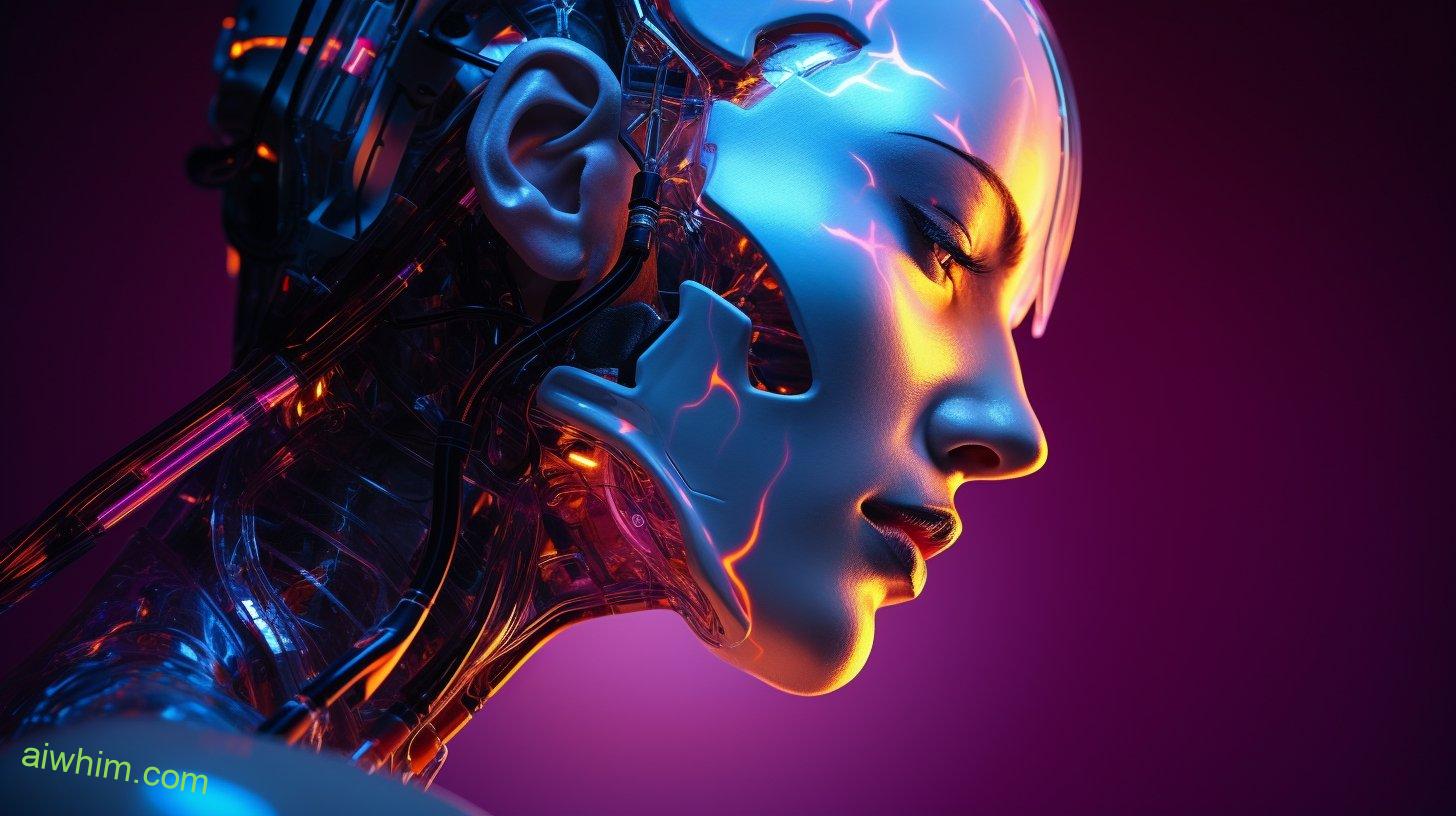
Skills and Training Needed for Therapists in the AI Era
With the integration of AI technology in the therapy field, therapists need to acquire new skills and training to thrive in the AI era. As a therapist, you have always relied on your ability to connect with clients on a personal level and provide them with the support they need. However, with the rise of AI, it’s crucial to adapt and update your skill set to stay relevant in this ever-changing landscape.
One of the key skills you should focus on developing is your understanding of AI technology itself. Familiarize yourself with the different types of AI systems used in therapy, such as chatbots and virtual reality programs. By understanding how these technologies work, you can effectively collaborate with them to provide better care for your clients.
In addition to technical skills, honing your emotional intelligence will be vital in the AI era. AI may be able to provide clients with information and resources, but it can’t replace the human connection and empathy that you bring to the therapeutic relationship. By continuously developing your emotional intelligence, you can provide a safe and supportive environment for your clients, helping them navigate their emotions and experiences.
Continuous training and professional development will also be crucial in the AI era. Stay up-to-date with the latest advancements in AI technology and how they’re being integrated into therapy practices. Attend workshops, conferences, and online courses to enhance your knowledge and skills in this field.
As the therapy field evolves with the integration of AI, it’s essential for therapists to equip themselves with the necessary skills and training to thrive. By embracing AI technology, developing emotional intelligence, and staying informed through continuous learning, you can adapt to the changing landscape and continue to provide effective and compassionate care for your clients in the AI era.
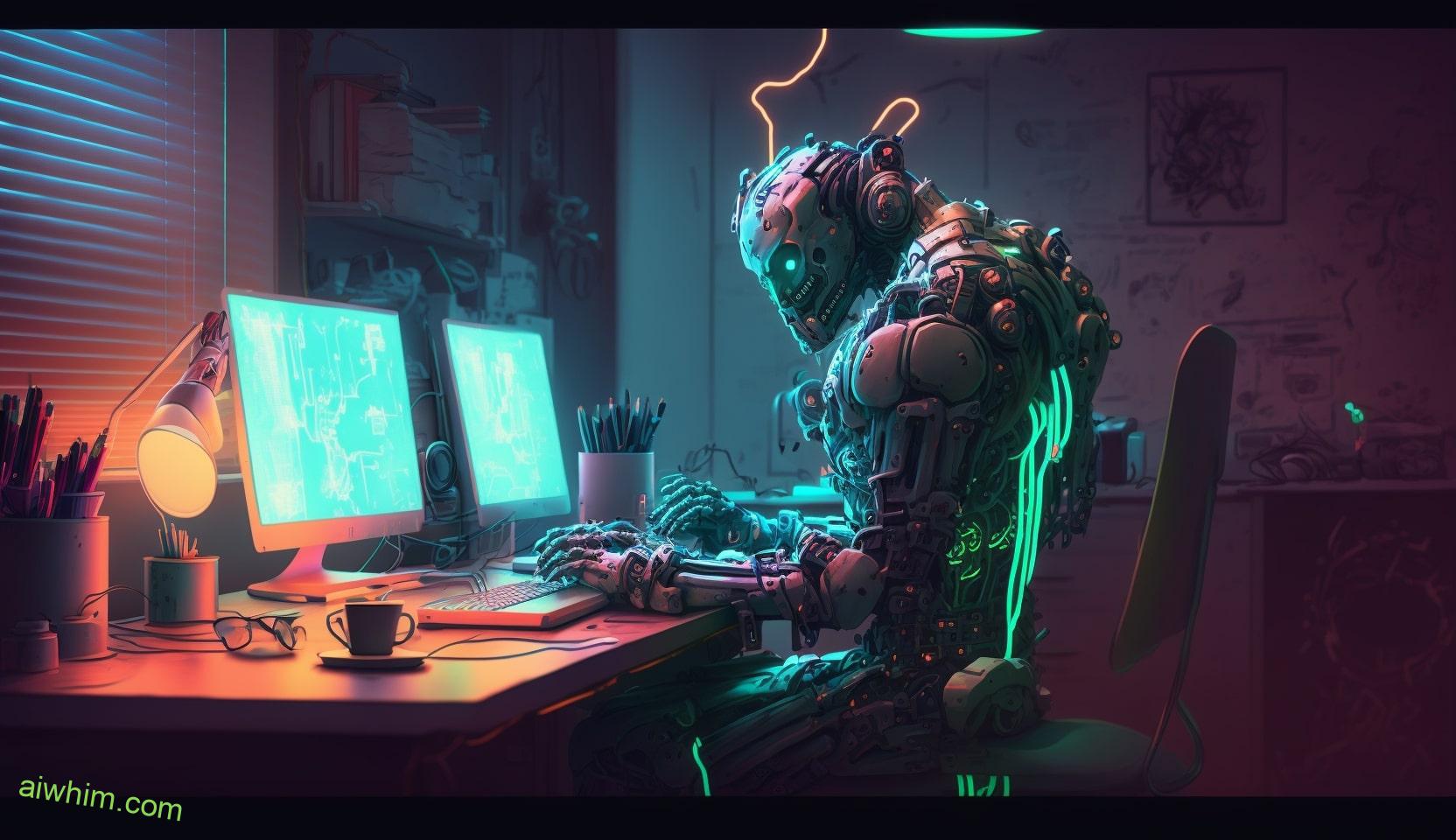
Addressing Concerns About AI Replacing Therapists
Therapists shouldn’t fear being replaced by AI, but rather embrace the potential benefits it can bring to the field. While concerns about AI therapy effectiveness and confidentiality are valid, it’s important to consider the following points:
- Enhanced Therapy Effectiveness: AI has the potential to enhance therapy effectiveness by providing therapists with valuable insights and data-driven recommendations. By analyzing vast amounts of information, AI can help therapists identify patterns and trends that may not be apparent to the human eye. This can lead to more accurate assessments and personalized treatment plans, ultimately improving client outcomes.
- Improved Confidentiality: Confidentiality is a cornerstone of therapy, and rightfully so. Many worry that AI may compromise this fundamental principle. However, advancements in AI technology have led to robust security measures and encryption protocols. These measures can help ensure that client information remains confidential and protected from unauthorized access. With proper safeguards in place, AI can actually enhance confidentiality by minimizing human errors and biases.
- Collaborative Approach: Rather than replacing therapists, AI can serve as a valuable tool in a collaborative therapeutic approach. By working alongside AI systems, therapists can leverage the power of technology to augment their skills and knowledge. This synergistic relationship can lead to more comprehensive and effective treatment plans, benefiting both therapists and clients.
It is crucial to approach the integration of AI in therapy with an open mind and a commitment to ethical practice. By embracing the potential benefits of AI, therapists can harness its power to improve therapy effectiveness, ensure confidentiality, and ultimately deliver better outcomes for their clients. In this era of technological advancements, it’s essential to adapt and evolve while keeping the human touch at the heart of therapy.

How AI Can Enhance Therapeutic Outcomes
By utilizing AI technology, therapists can unlock new possibilities and enhance therapeutic outcomes. AI supported interventions can provide therapists with valuable tools and resources to improve their practice and better serve their clients. Through therapist AI collaboration, the combination of human expertise and AI capabilities can lead to more effective and personalized treatment plans.
One way that AI can enhance therapeutic outcomes is through the use of AI-supported interventions. These interventions can range from chatbots that provide immediate support and guidance to virtual reality programs that simulate real-life scenarios for exposure therapy. AI can also analyze large amounts of data to identify patterns and trends that may not be immediately apparent to human therapists. By leveraging AI technology, therapists can gain access to a wealth of information and insights that can inform their treatment decisions and improve client outcomes.
Therapist AI collaboration is another area where AI can enhance therapeutic outcomes. Rather than replacing therapists, AI can act as a valuable assistant, helping therapists to streamline their workflow and make more informed decisions. For example, AI can assist with the assessment process by analyzing client responses and providing therapists with data-driven insights. AI can also help therapists to track client progress over time, identify potential risks or relapses, and suggest appropriate interventions.

Strategies for Therapists to Adapt to AI Technology
To successfully navigate the integration of AI technology into your practice, therapists can employ various strategies that embrace the benefits and opportunities it offers. Here are some strategies you can consider:
- Embrace collaboration: Instead of viewing AI as a threat, see it as a tool that can enhance your therapeutic practice. Collaborate with AI systems to augment your skills and expertise, allowing for more accurate assessments and personalized treatment plans.
- Continuous learning: Stay updated with the latest advancements in AI technology and how they can be applied to therapy. Attend workshops, conferences, and training programs to enhance your knowledge and skills in utilizing AI tools effectively.
- Emphasize the human touch: While AI can provide valuable insights and support, it can’t replace the human connection and empathy that therapists offer. Focus on building and maintaining strong relationships with your clients, emphasizing the importance of human interaction in the therapeutic process.
- Adapt to changing roles: As AI technology evolves, the role of therapists may shift. Embrace new responsibilities and adapt to changing dynamics within your practice. Explore opportunities to collaborate with AI systems in areas such as data analysis, treatment planning, and monitoring progress.
- Ethical considerations: As AI becomes more integrated into therapy, it’s crucial to uphold ethical standards and ensure client confidentiality and privacy. Stay informed about ethical guidelines and regulations related to AI use in therapy, and implement safeguards to protect your clients’ information.
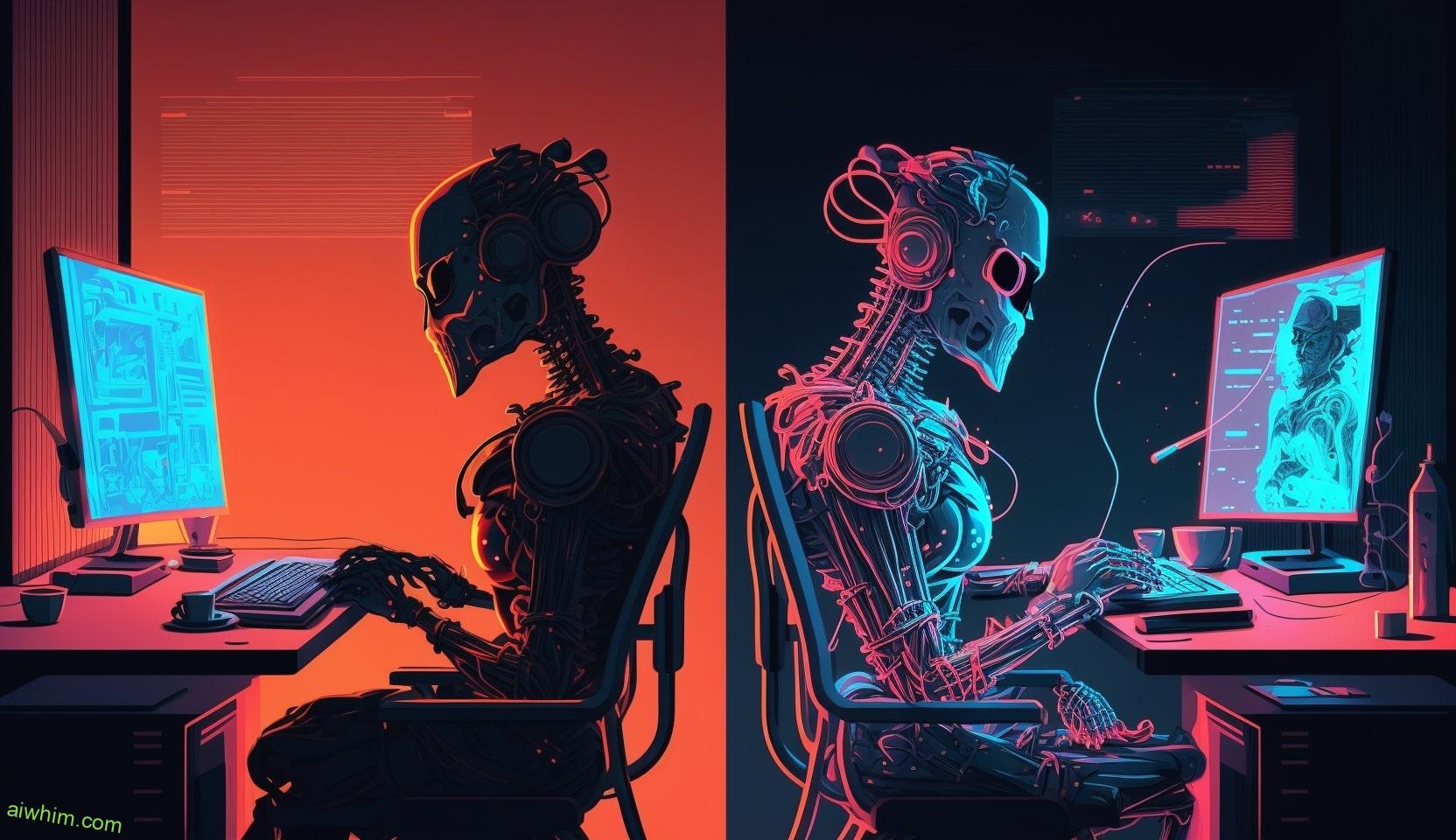
Frequently Asked Questions
How Can Therapists Ensure the Ethical Use of AI in Therapy?
To ensure the ethical use of AI in therapy, therapists must follow ethical guidelines and integrate AI in ways that prioritize client well-being and privacy. Maintain a balance between technology and human connection for optimal therapeutic outcomes.
What Are the Potential Risks of Relying Too Heavily on AI Tools for Assessment and Diagnosis?
Relying too heavily on AI tools for assessment and diagnosis can be risky. It’s like giving your heart to a machine, sacrificing human connection and the potential for ethical considerations and accurate results.
Will AI Technology Replace Human Therapists in the Future?
AI technology may offer convenience and efficiency, but it cannot replace the ethical implications and human connection of a human therapist. Embrace the freedom of choice and the value of personal interaction.
How Can Therapists Adapt Their Skills and Training to Incorporate AI Technology?
You can adapt your therapy practices by integrating AI into your sessions. Embrace technology to enhance your abilities and provide more personalized and efficient care for your clients. Stay open-minded and embrace the future of therapy.
What Strategies Can Therapists Use to Enhance Therapeutic Outcomes When Using AI Technology?
To enhance therapy outcomes while using AI, therapists can focus on ethical use of technology. Incorporate AI as a tool, not a replacement. Maintain human connection, empathy, and trust. Continuously adapt and learn to provide the best care in the changing landscape.

Conclusion
In conclusion, while there are concerns about AI potentially replacing therapists in the future, it’s important to recognize that AI technology can actually enhance therapeutic outcomes. By incorporating AI tools and techniques into their practice, therapists can adapt and provide more effective and personalized treatment to their patients.
So, why not embrace the potential of AI to improve the field of therapy and create a more holistic approach to mental health?

